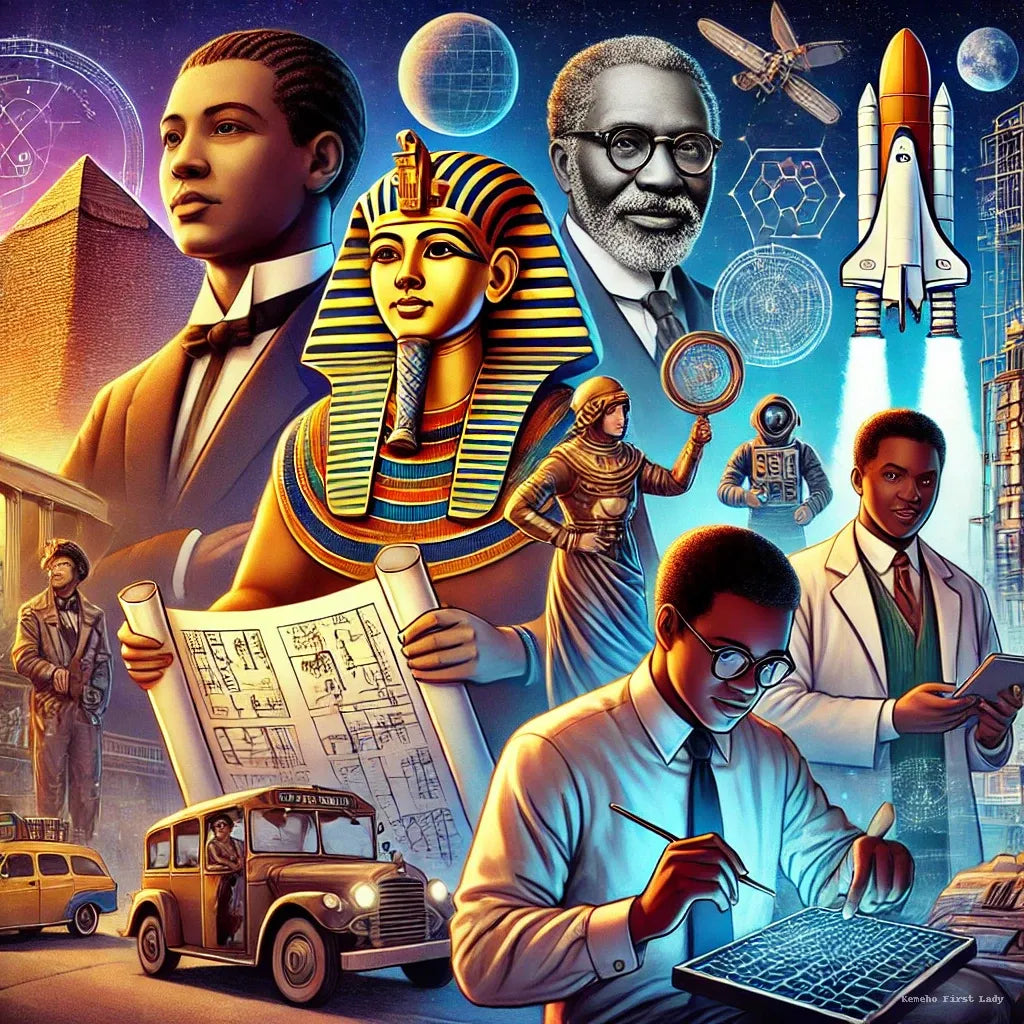
Black Scientific and Technological Contributions That Changed the World
Share Label
The history of science and inventions is often told from a Western perspective, overlooking the major contributions of Black researchers, engineers, and inventors. However, Black figures have revolutionized medicine, engineering, aerospace, and many other fields. This article highlights some of the most significant discoveries and inventions made by Black individuals throughout history.
1. Black Pioneers in Science
Imhotep (Ancient Egypt, c. 2600 BCE)
Regarded as the first recorded physician and architect in history, Imhotep designed the Step Pyramid of Saqqara and was a medical pioneer in ancient Egypt. His knowledge influenced future generations, and he was even deified after his death.

George Washington Carver (1864–1943, United States)
An agronomist and scientist, George Washington Carver revolutionized agriculture by developing more than 300 uses for peanuts and sweet potatoes. His work improved soil fertility and supported Black farmers in the United States.
Katherine Johnson (1918–2020, United States)
A brilliant mathematician, Katherine Johnson played a key role in calculating the trajectories for NASA’s space missions, including the Apollo 11 moon landing in 1969. Her work remained largely unrecognized for years due to racial segregation.
Dr. Marie Maynard Daly (1921–2003, United States)
The first Black woman in the United States to earn a PhD in chemistry, Marie Maynard Daly conducted groundbreaking research on hypertension and cardiovascular disease, paving the way for heart attack prevention.
2. Black Inventions That Changed Everyday Life
The traffic light and portable refrigerator – Garrett Morgan (1877–1963, United States)
Garrett Morgan invented the modern three-position traffic light, which regulates global traffic today. He also developed an early prototype of the gas mask used in World War I and a portable refrigerator that inspired the modern cooler.
The pacemaker – Otis Boykin (1920–1982, United States)
Engineer Otis Boykin enhanced the electronic circuits of the pacemaker, which has since saved millions of lives.
The first portable computer – Mark Dean (b. 1957, United States)
Mark Dean, an engineer at IBM, co-invented the first portable PC and the technology that enables modern peripheral devices like mice and printers to connect to computers.
The modern air conditioning system – Frederick McKinley Jones (1893–1961, United States)
Frederick McKinley Jones invented the truck refrigeration system, allowing perishable goods and medicines to be transported worldwide.
The disposable syringe – Philip Emeagwali (b. 1954, Nigeria)
A mathematician and computer scientist, Philip Emeagwali’s work on supercomputers contributed to the development of the disposable syringe, a critical tool in modern medicine.
3. Contributions of Black Scientists to Modern Fields
Astronomy and Aerospace 🚀
- Mae Jemison (b. 1956, United States): The first Black woman astronaut to travel to space in 1992.
- Dr. George Carruthers (1939–2020, United States): A physicist who invented the first ultraviolet telescope used during the Apollo missions.
Medicine and Biology 🏥
- Dr. Charles Drew (1904–1950, United States): A pioneer in blood plasma preservation, he established the modern blood bank system.
- Dr. Patricia Bath (1942–2019, United States): The first Black female ophthalmologist, she invented a revolutionary method for treating cataracts.
Artificial Intelligence and Computing 💻
- Timnit Gebru (b. 1983, Ethiopia/United States): A trailblazing researcher in AI ethics, she has exposed racial biases in algorithms.
- Dr. Marian Croak (b. 1955, United States): Inventor of VoIP technology, enabling Internet-based phone calls.
Conclusion
Black inventors and scientists have made tremendous contributions to the advancement of our world. From ancient times to cutting-edge technologies, their discoveries have saved millions of lives and improved our daily lives. Yet, these individuals are often left out of academic and media narratives.
Restoring their legacy is not just about honoring the past—it’s about recognizing the immense impact of Black excellence in science and inspiring future generations to pursue their dreams, regardless of their background. 🚀📚









